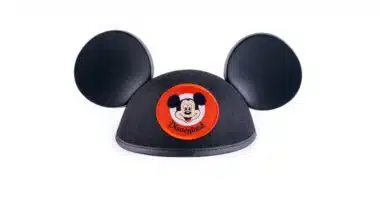 A link between railroad work and cancer means that railroad workers are exposed to more dangerous chemicals than previously thought.
A link between railroad work and cancer means that railroad workers are exposed to more dangerous chemicals than previously thought.
Benzene was banned from consumer products more than 20 years ago in the United States, but some railroad products may still contain the ingredient. It’s also released into the air by burning diesel fuel.
Although colorless, benzene has a sweet odor. It evaporates quickly, but is very flammable. It can exist naturally in the environment as a by-product of volcanoes and forest fires. It’s also found in crude oil, gasoline and cigarette smoke.
The International Agency for Research on Cancer (IARC) is the agency within the World Health Organization (WHO) that determines what agents are considered carcinogens. The IARC has determined benzene is “carcinogenic to humans” because of evidence the chemical causes acute myeloid leukemia, more commonly known as AML.
Benzene exposure increases the risk of cancers of the lung, bladder, colon, esophagus, throat, kidneys, rectum and stomach.
Coal Tar Creosote Another Link Between Railroad Work and Cancer
Coal tar creosote has been used as a wood preservative on railroad crossties for many years. Coal tar creosote is a thick, oily liquid with a smoky odor. It’s usually a mixture of many chemicals that includes beech or other woods, coal, and/or resin from the creosote bush. The Centers for Disease Control indicates creosote is toxic, particularly to the skin and liver.
The railroad industry produces more than 24 million crossties annually, and 93 percent are made of wood. Wood can expand and contract in different weather conditions, and it can absorb shock from the moving trains. Without heavy chemical treatment, though, wood can rot and attract termites.
Most hardwood is pressure-treated with creosote. If a wood is particularly hard to treat, a dual process including treatments with borates and then more creosote is used. Borates help protect the wood ties from fungus and other natural decomposers of wood.
In 2015, more than 15 million railroad ties were installed by the major railroads.
Consequences for an Unsafe Work Environment
If a railroad company negligently fails to provide a safe working environment for its workers, those who were exposed to toxins could have a claim against the company under the Federal Employers Liability Act (FELA). When employees have worked in hazardous environments where precautions should have been taken but weren’t, FELA enables employees to seek financial compensation. Railroad workers do not need to spend out-of-pocket costs to participate in a lawsuit regarding the link between railroad work and cancer.
With exposure to so many known toxins, there appear to be multiple links between railroad work and cancer.
If you or a loved one worked on the railroad for more than five years and was diagnosed with cancer between 2013 and 2016, you could qualify to file a railroad work cancer lawsuit.
Do YOU have a legal claim? Fill out the form on this page now for a free, immediate, and confidential case evaluation. The attorneys who work with Top Class Actions will contact you if you qualify to let you know if an individual railroad worker cancer lawsuit or class action lawsuit is best for you. [In general, railroad worker cancer lawsuits are filed individually by each plaintiff and are not class actions.] Hurry — statutes of limitations may apply.
ATTORNEY ADVERTISING
Top Class Actions is a Proud Member of the American Bar Association
LEGAL INFORMATION IS NOT LEGAL ADVICE
Top Class Actions Legal Statement
©2008 – 2025 Top Class Actions® LLC
Various Trademarks held by their respective owners
This website is not intended for viewing or usage by European Union citizens.
Get Help – It’s Free
Join a Free Railroad Worker Cancer Class Action Lawsuit Investigation
If you qualify, an attorney will contact you to discuss the details of your potential case at no charge to you.
Please Note: If you want to participate in this investigation, it is imperative that you reply to the law firm if they call or email you. Failing to do so may result in you not getting signed up as a client, if you qualify, or getting you dropped as a client.
E-mail any problems with this form to:
[email protected].
Oops! We could not locate your form.












